Art With A Heart: Manveer Singh
Art is like meditation, it helps you find out who you are and it helps you connect with yourself, feels Delhi based visual artist Manveer Singh. Manveer was in Bhubaneswar to work on a project that aims to raise awareness of plastic pollution and its devastating effects on nature. As part of the project he conducted three workshops at Nicco Park where he interacted with peer volunteers or pragati sathis, at Unit 6 Government Girls High School and Utkal University.
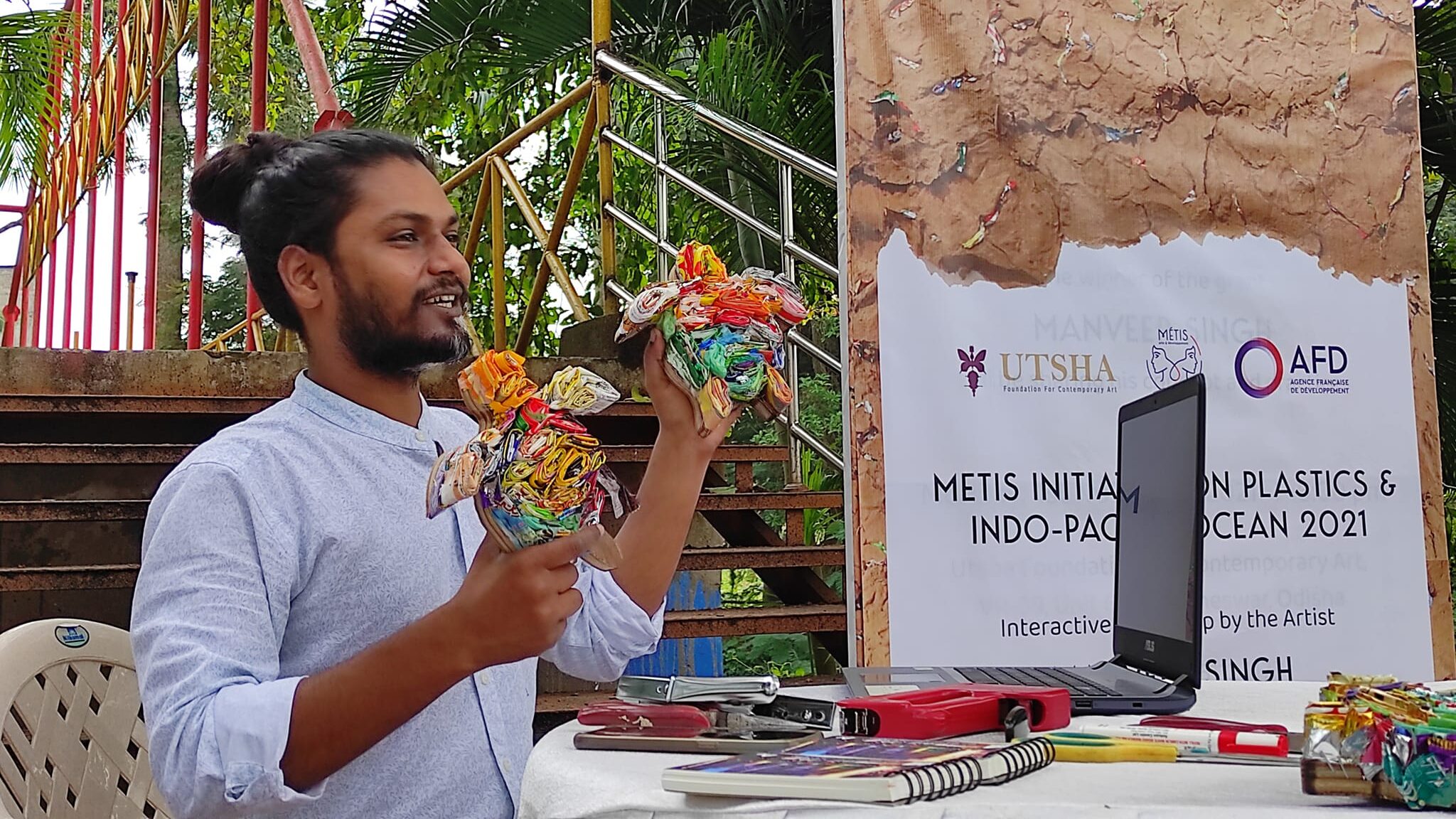
He collected plastic from different neighbourhoods, schools, offices etc for the project. “In the first workshop there were some school students and some college students. I explained to the children about different types of plastic and how to segregate them during the two hour workshop. The number 7 coded plastic which I am using as the medium for my work is not recycled as it does not have much value, so I am upcycling it in my art work. If it can be used to beautify a place then it is better than going to the landfills,” he shared an insight into the project.
The final output was on display at the Puri beach which was a 15 feet turtle for which he upcycled almost 50 kgs of plastic. Manveer, who won the “METIS Initiative on Plastics and Indo-Pacific Ocean 2021”, is working on the Socially Smart Bhubaneswar Project Manveer was on residency at the Utsha Foundation for Contemporary Art, which is collaborating with the French Development Agency (AFD) on this project.
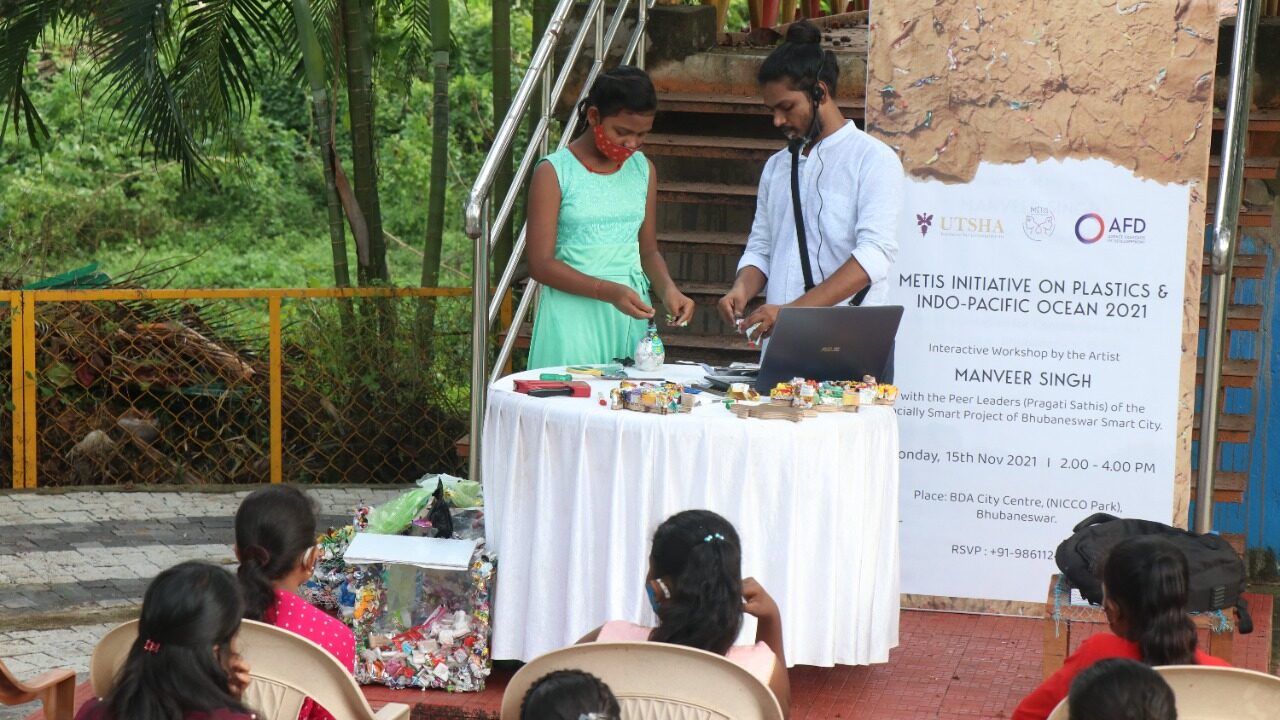
“I am working on the METIS project in collaboration with AFD which is celebrating it’s 80th anniversary with Indo-Pacific countries like India, Indonesia and Mauritius. I am part of it in India. METIS had declared an open competition last September through which they were providing a supportive grant. 26 artists from all over the country had applied. My proposal was liked by the two tier jury and it was accepted, so I am here,” he shared
As part of his awareness through his artwork, he collected plastic through his 40-odd habit changer boxes placed at several locations across the city. Talking about this unique box, he said, “Generally we don’t have any interaction with our dustbins. They are opaque and we don’t notice what goes inside them and how much of what material we consume. I created a transparent box so that we can see the amount of plastic we consume which will lead to a need for source segregation. That is why I am calling it the habit changer box. We have distributed around 40 boxes to the local people here, in schools and offices.”
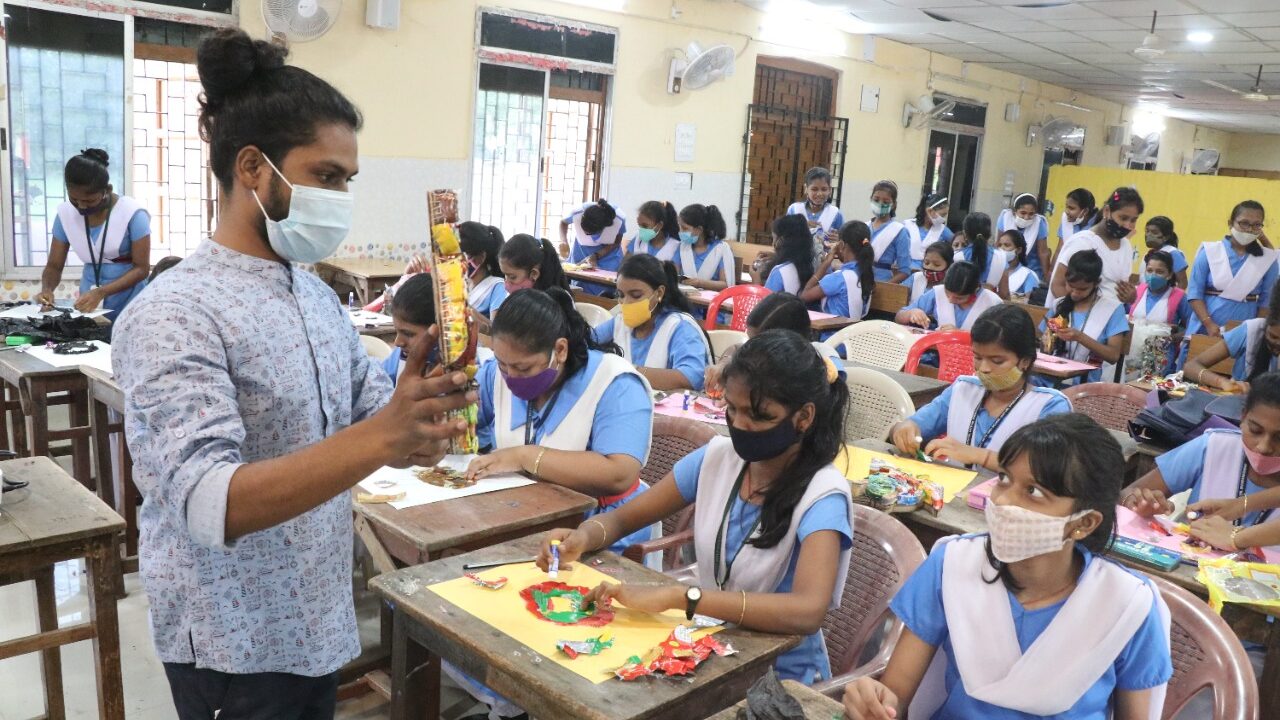
Through the installation he created on the METIS project he has tried to represent the Olive Ridley turtle as Odisha’s identity. The turtles come here to Arribada and they face a lot of threat because of the plastic pollution. “I have tried to highlight the crisis they face. When you see the installation from afar you see a turtle but when you take a closer look you will see that it is plastic. This is a futuristic dystopian art,” he said.
As part of this METIS grant, Manveer created an art installation on the endangered sea turtles. The artwork was based on plastic waste to create public awareness about recycling and the need to reduce consumption. Currently, AFD is funding the City Investments to Innovate, Integrate and Sustain (CITIIS) Programme in Bhubaneswar and 11 other cities of India through the Smart City Mission.
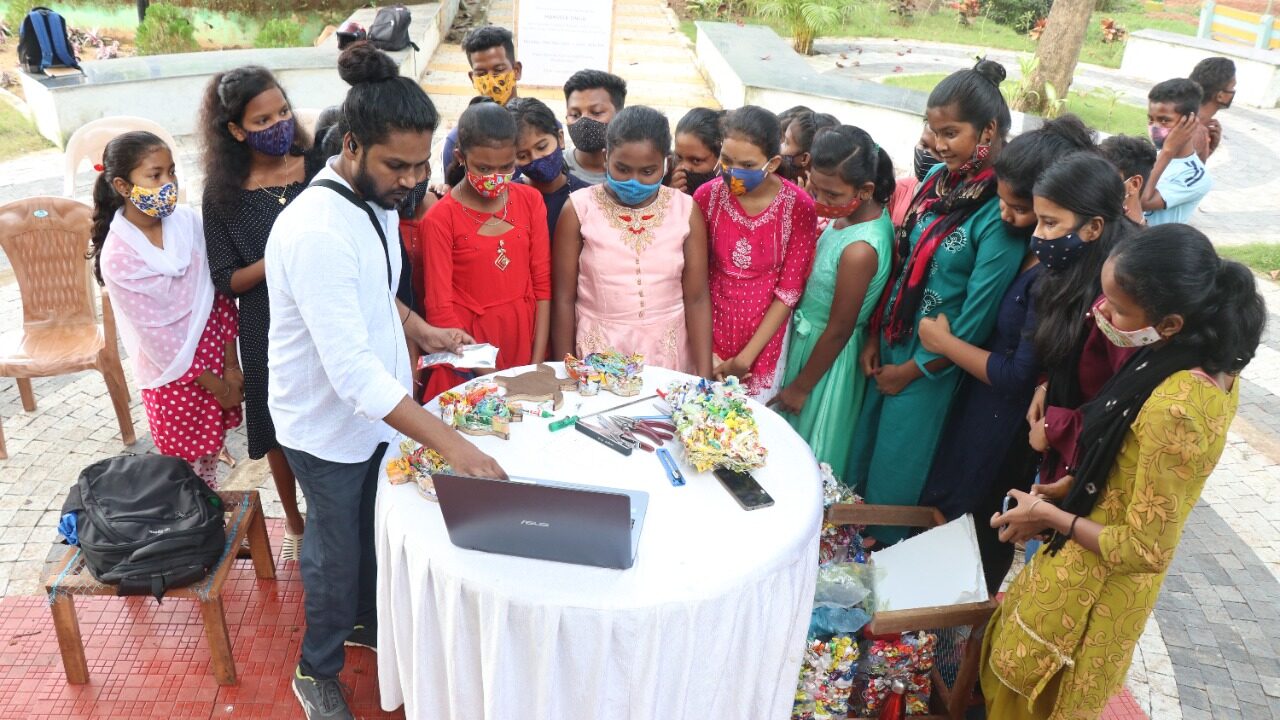
Manveer was born in Haridwar and he did his schooling in Rewari, Haryana. From 2010 to 2016 he did his Bachelor of Fine Arts and Master of Fine Arts in Painting from the College of Arts, Delhi. From 2017 he joined the College of Arts as an Assistant Professor. “I used to paint live landscapes and soon I realised that the nature that I am painting is getting destroyed because of plastic pollution. So I started using plastic as a material in my art. Discarded plastic pollutes but when used properly it can also beautify a place. I use code 7 plastic or multi-layered plastic in my art as it cannot be recycled. I collect plastic from households which also helps me raise awareness about pollution. So far I have upcycled more than 350 kgs of plastic through my art projects,” he informed about how plastic became part of his artworks.
Manveer weaves plastic to create his installations. He collects them, washes and sanitises them before segregating them based on colour. Then he puts them up on a framework that he has created and weaves them according to the need of the installation.
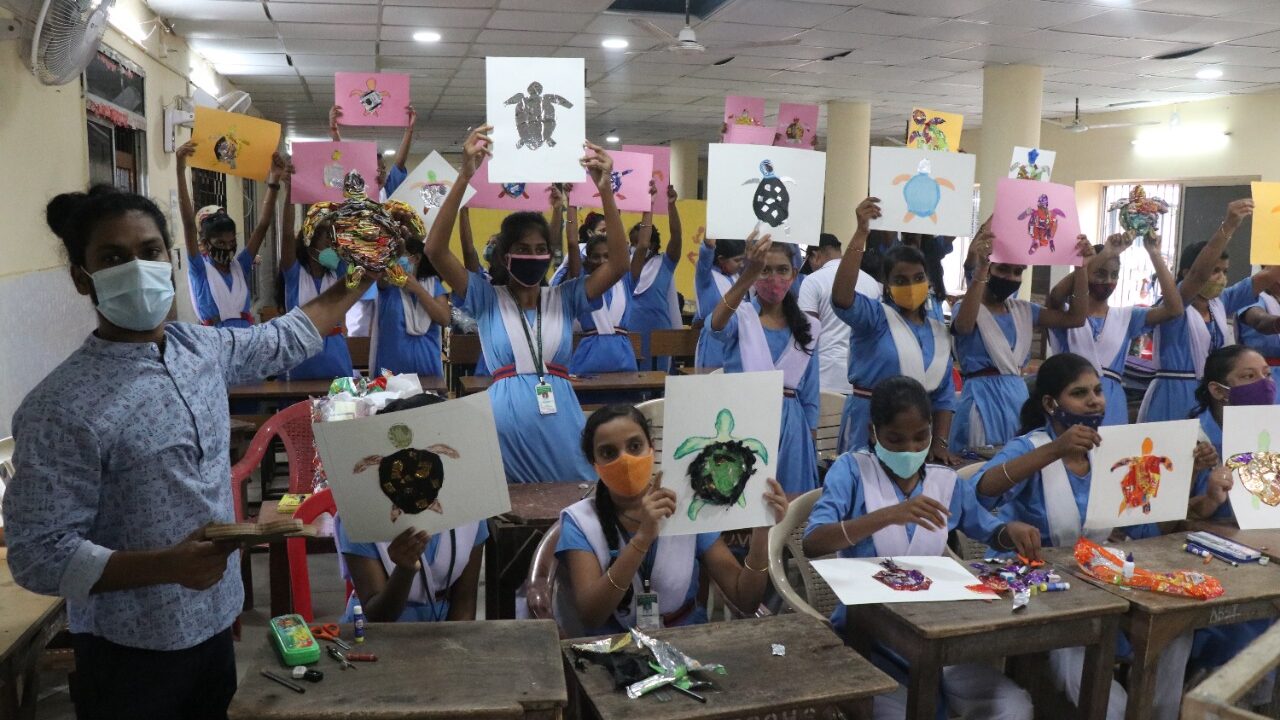
Manveer comes from a farming family. “There have been no artists in my family. I used to draw during my school days. In small towns we are not much aware about arts and nobody knows that art can be studied in colleges and universities as well. I got some guidance through my teachers and came to Delhi where I studied art,” he shared about his journey into the world of art.
About his experience in Bhubaneswar, he said, “I love Bhubaneswar because there is less pollution compared to Delhi. The roads are wide but have lesser traffic. It feels very calm here. Here the consumption of plastic is less. I have noticed that people here carry bags with themselves while shopping which is a very good thing.”

“I would like to request the youngsters to be mindful of what we consume. We should make ourselves aware about pollution and its effects on nature and our life. Pollution is not just something we study in classrooms anymore, it is real. We can make the change by changing our behaviour now,” he signed off.
Author: Debi prasad sahu
Debi is an auteur of minimalism and a connoisseur of world movies and music. He loves to go on gastronomic adventures and crack PJs. He writes poetry and is a hippie soul.
Read more from author


